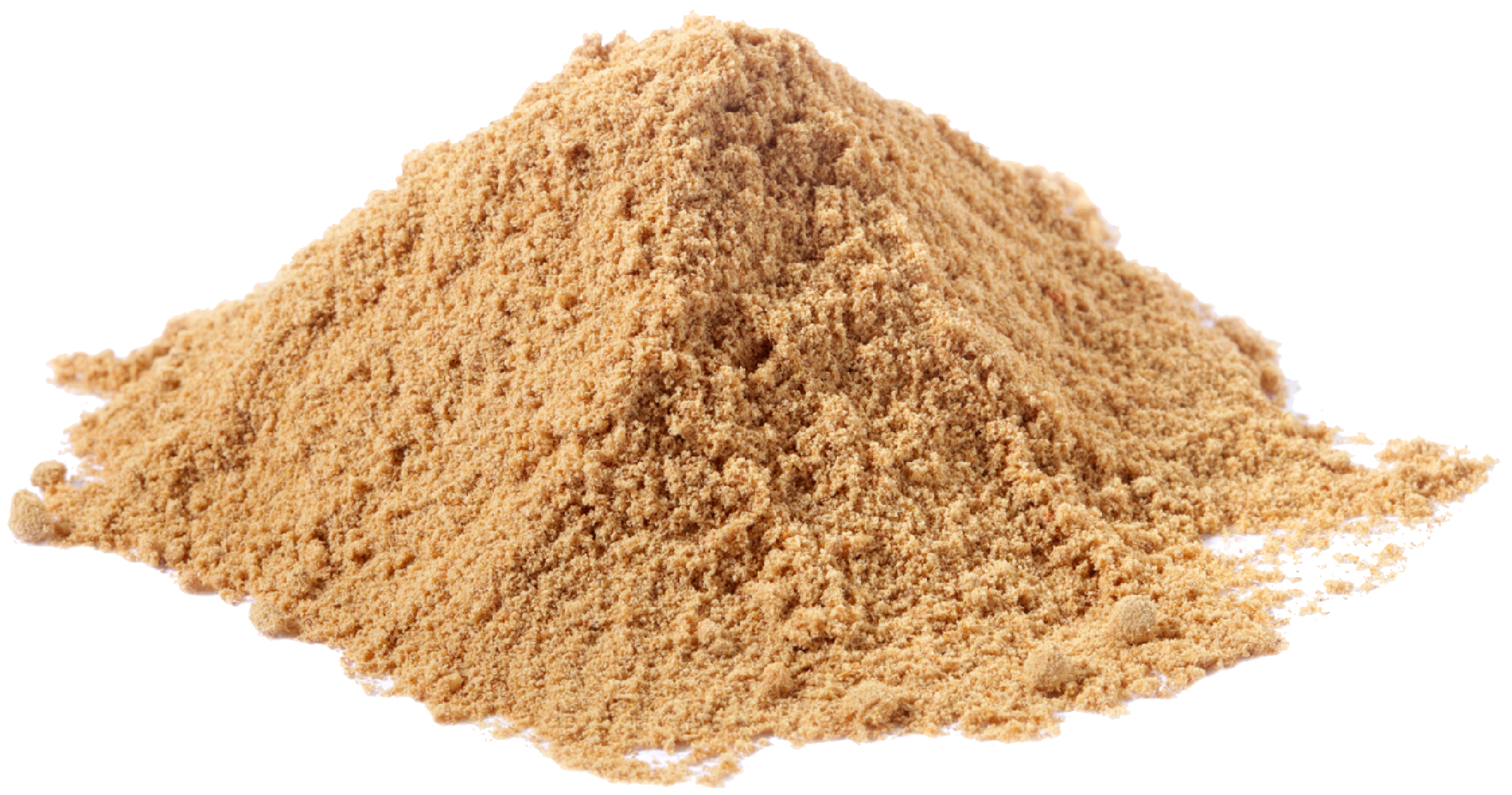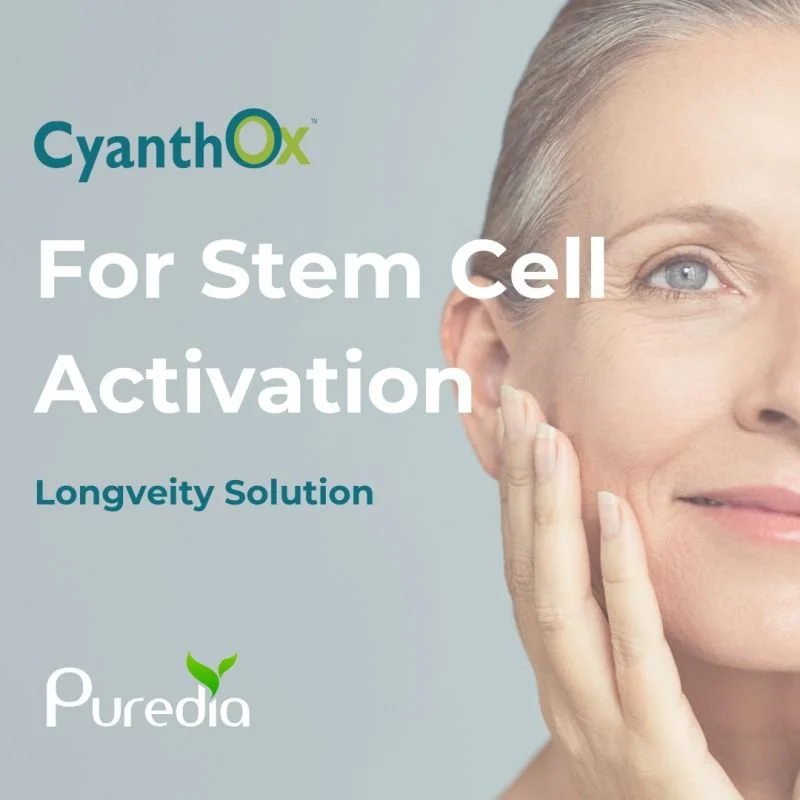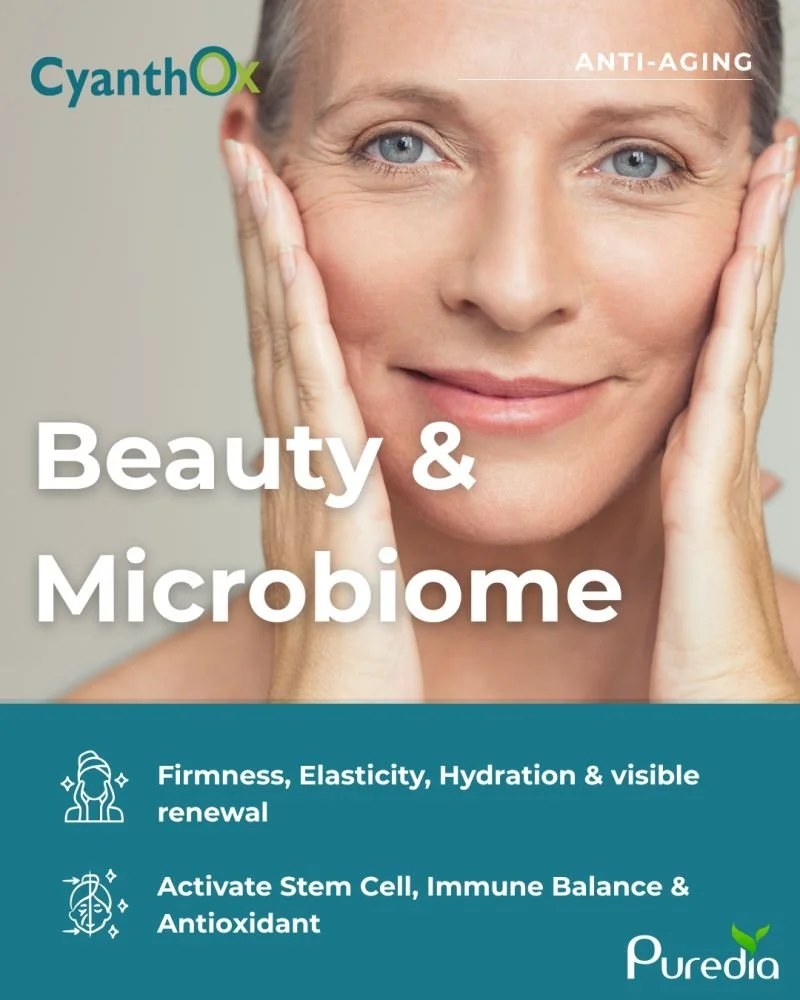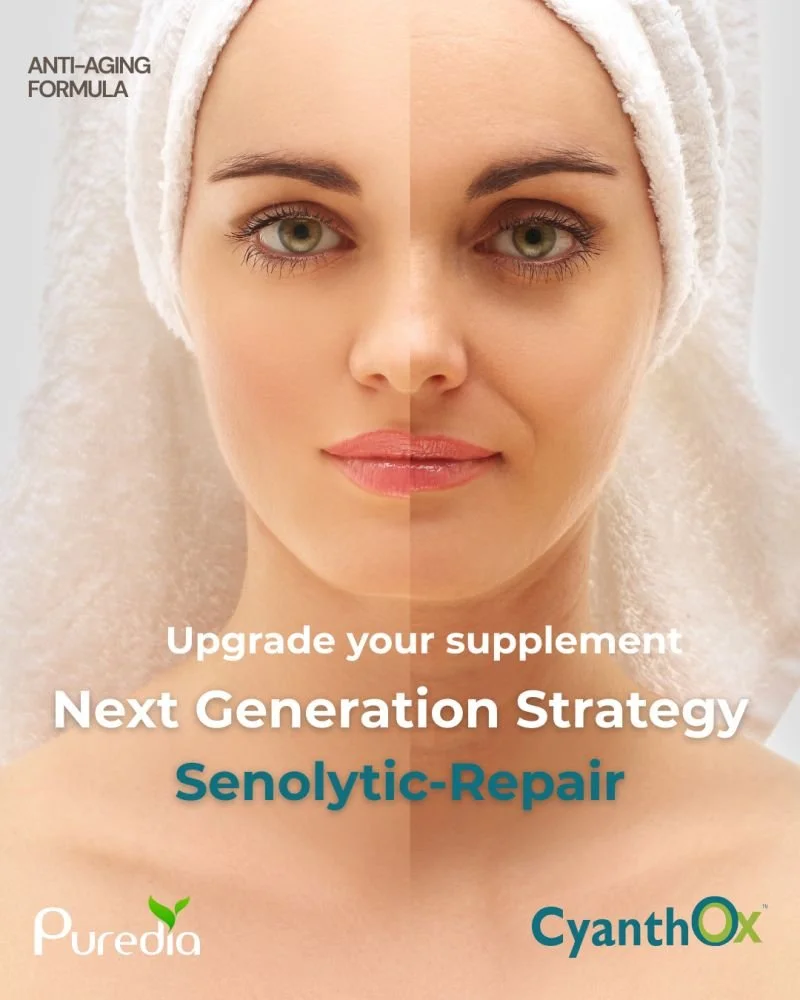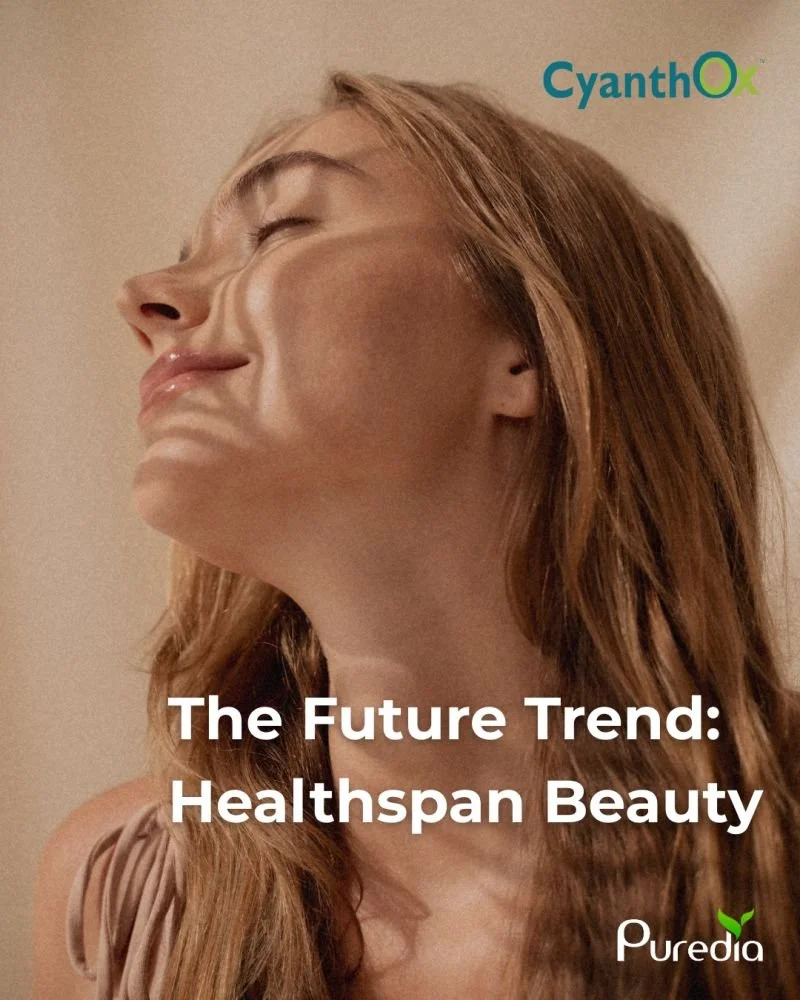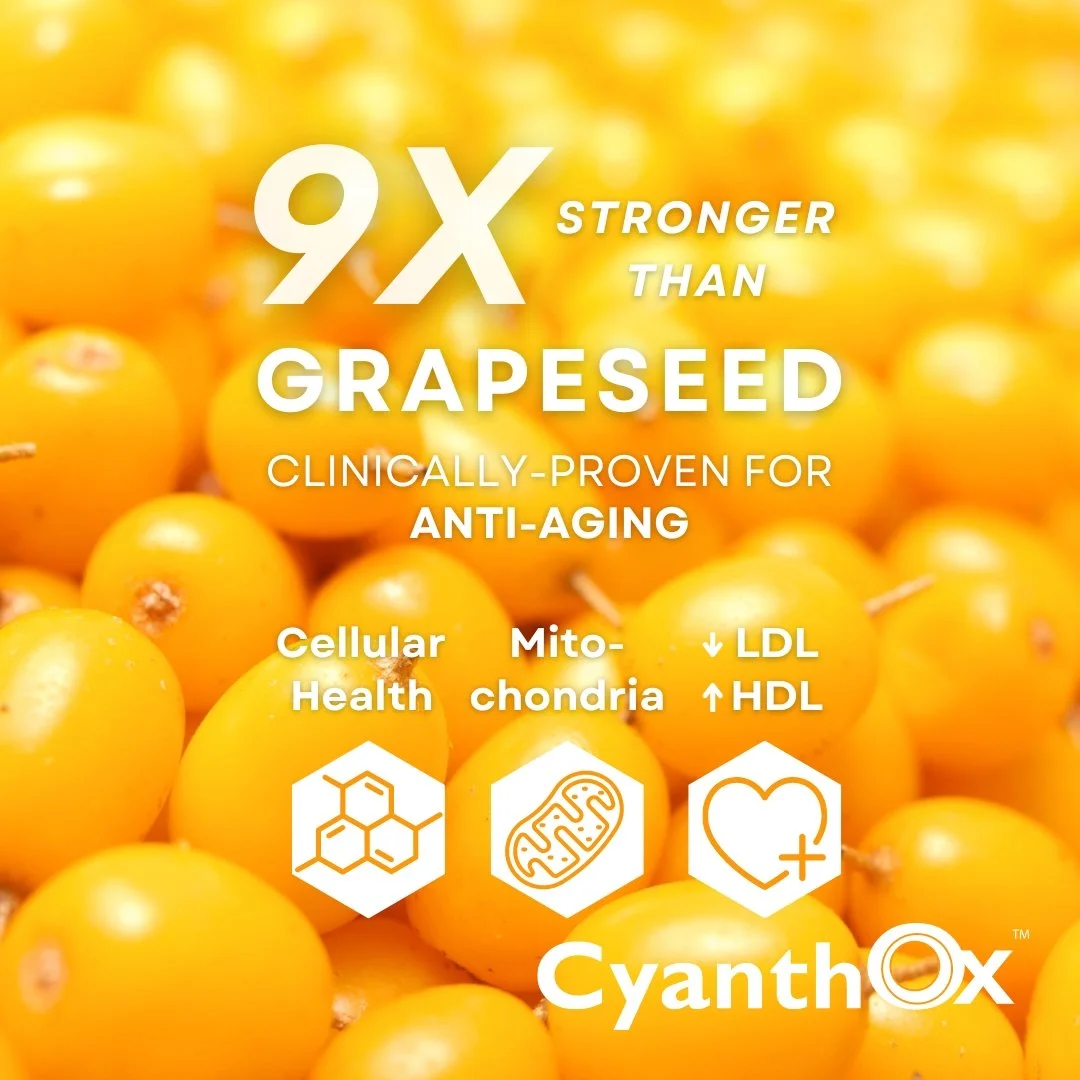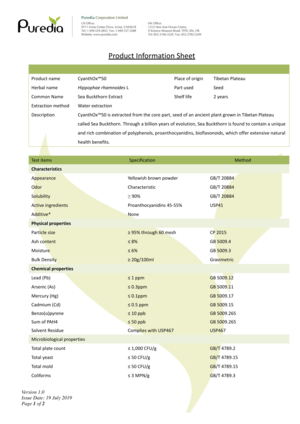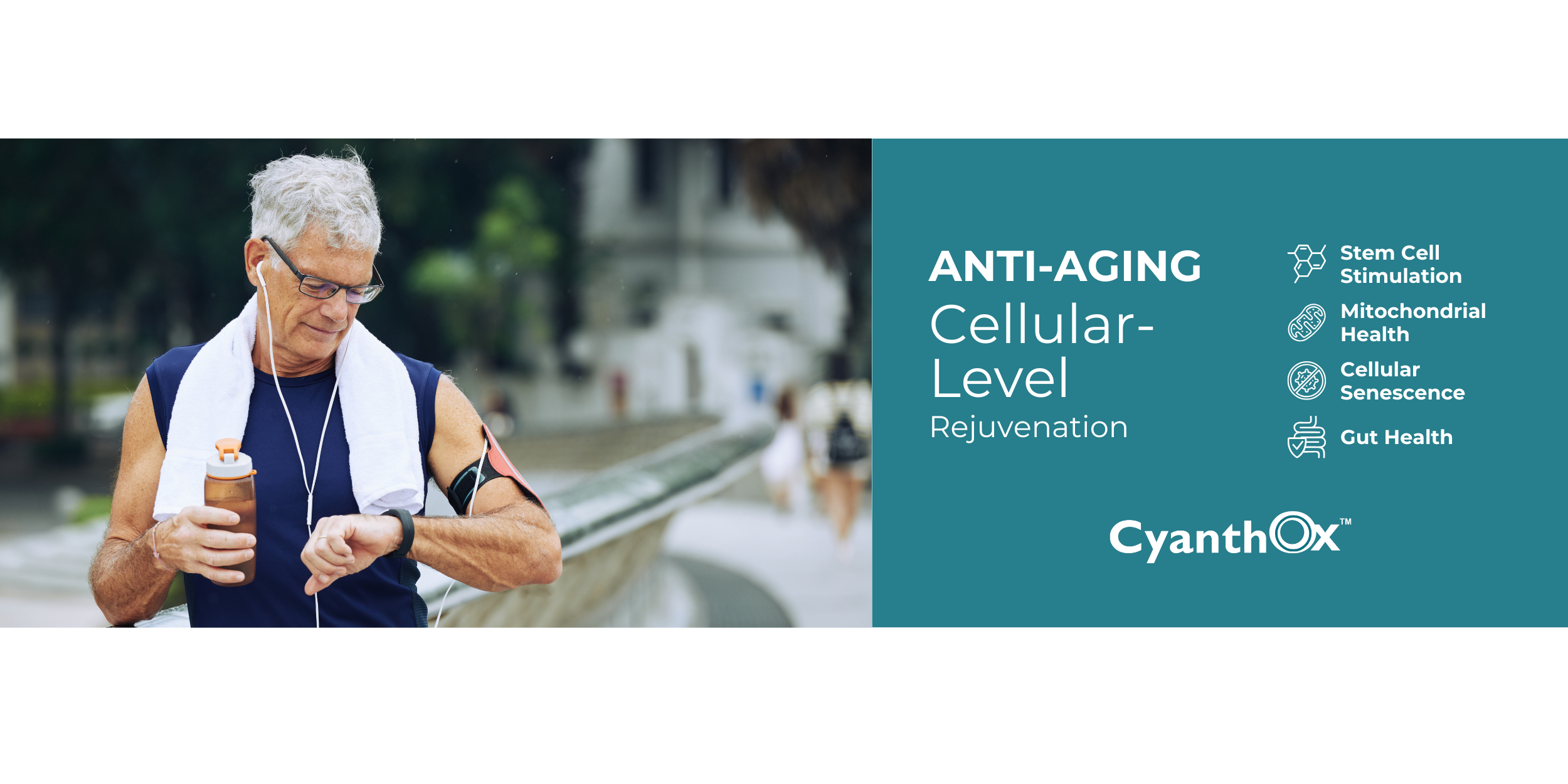
What is CyanthOx™?
CyanthOx™ is extracted from an ancient plant grown in Tibetan Plateau called sea buckthorn. Through millions of years of evolution, sea buckthorn is a treasure of bioactive nutrients. CyanthOx™ water-soluble extract is a unique and rich combination of polyphenols, proanthocyanidins, and bioflavonoids, which offer extensive natural health benefits.
Composition
Shown by the HPLC on the right, the main flavonoids found in CyanthOx™ are:
Quercetin
Kaempferol
Isorhamnetin
High Performance Liquid Chromatogram(HPLC) of CyanthOx™
ORAC Comparison
ORAC (μmol TE/100g)
As a result of its rich antioxidant profile, CyanthOx™ is very potent in terms of antioxidant capability.
According to Oxygen Radical Absorbance Capacity (ORAC) analysis*, CyanthOx™ has an ORAC value of 895,281 μmol TE/100g (Puredia Corporation Limited, 2019).
In comparison, CyanthOx™ is 9 times stronger than grape seed extract (Superfoodly.com, 2019) and ~2 times more potent french maritime pine bark extract (Legault et al., 2013).
*a method of measuring antioxidant capacities in biological samples
CyanthOx™ is 9X Stronger than Grape Seed
ORAC Comparison | Tested by eurofins
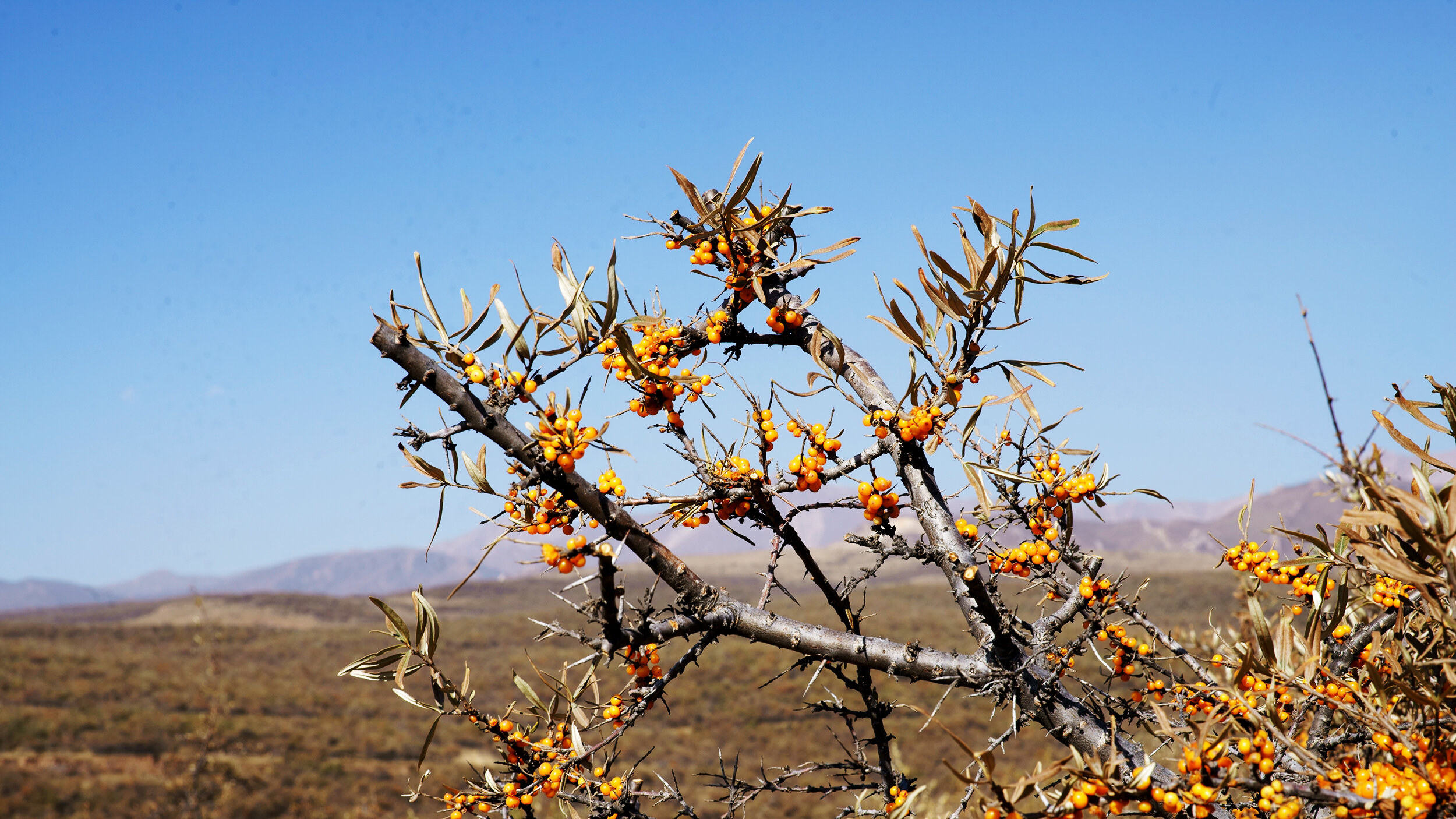
Clinical Result
Cellular Regeneration
A clinical study recently published in Clinical Interventions in Aging shows that CyanthOx™30 may stimulate 3 different types of stem cell, contributing to anti-aging, anti-inflammation, skin health, vessel health and blood circulation.*
Design: Randomized, placebo-controlled, double-blinded, cross-over trial was conducted in 12 participants for 2 hours.
Serving Size: 500mg CyanthOx™30 per day
Result: Consumption of sea buckthorn proanthocyanidins leads to an increase in the following stem cells:
Progenitor stem cell
Endothelial stem cell
Mesenchymal stromal cell
Conclusion: 500mg CyanthOx™30 (150mg sea buckthorn proanthocyanidins) stimulates 3 different types of stem cell and supports preventive health, regenerative health, and postponing the aging process.*
(Drapeau, Benson and Jensen, 2019)
Cellular Energy
Design: In vitro experiment conducted using RAW 264.7 macrophage cells. Cells were pretreated with different concentrations of CyanthOx™80 at 25, 50, and 100 μg/ml for 4 hours, followed by exposure to oxidative stress induced by 800 μmol/L hydrogen peroxide (H₂O₂) for an additional 4 hours.
Result: CyanthOx™ has been shown to enhance ATP by 91%, Mitochondrial Mass by 69% and Nitric Oxide by 96%.
Conclusion: CyanthOx™ effectively protect mitochondrial function, enhancing cellular energy, supporting healthy aging, and improving overall cellular vitality.*
(Liu et.al., 2022)
Specification
Proanthocyanidins ≥ 30% / 50% / 80%
Bioflavonoids (including Quercetin, Kaempherol, 3-methylquercetin) ≥ 20%
Completely soluble in water, suitable for beverage applications
Excellent Thermal Stability and pH Stability
Certified with the following:
Recommended Serving Size: 500mg / 300mg / 187.5mg per day
Shelf-Life: 3 years
Reference
Puredia Corporation Limited. (2019). CyanthOx™80 ORAC Analytical Report. Available at: Here.
Superfoodly.com. (2019). Antioxidant ORAC Value: Grape Seed Extract. [online] Available at: https://www.superfoodly.com/orac-value/grape-seed-extract/.
Legault, J., Girard-Lalancette, K., Dufour, D. and Pichette, A. (2013). Antioxidant Potential of Bark Extracts from Boreal Forest Conifers. Antioxidants, [online] 2(3), pp.77-89. Available at: https://www.ncbi.nlm.nih.gov/pmc/articles/PMC4665433/.
Drapeau, C., Benson, K. and Jensen, G. (2019). <p>Rapid and selective mobilization of specific stem cell types after consumption of a polyphenol-rich extract from sea buckthorn berries (<em>Hippophae</em>) in healthy human subjects</p>. Clinical Interventions in Aging, [online] Volume 14, pp.253-263. Available at: https://www.ncbi.nlm.nih.gov/pmc/articles/PMC6368418/.
Sugimura, R., Jha, D., Han, A., Soria-Valles, C., da Rocha, E., Lu, Y., Goettel, J., Serrao, E., Rowe, R., Malleshaiah, M., Wong, I., Sousa, P., Zhu, T., Ditadi, A., Keller, G., Engelman, A., Snapper, S., Doulatov, S. and Daley, G. (2017). Haematopoietic stem and progenitor cells from human pluripotent stem cells. Nature, [online] 545(7655), pp.432-438. Available at: https://www.ncbi.nlm.nih.gov/pubmed/28514439.
Yoder, M. (2017). Endothelial stem and progenitor cells (stem cells): (2017 Grover Conference Series). Pulmonary Circulation, [online] 8(1), p.204589321774395. Available at: https://www.ncbi.nlm.nih.gov/pmc/articles/PMC5731724/.
Goldberg, A., Mitchell, K., Soans, J., Kim, L. and Zaidi, R. (2017). The use of mesenchymal stem cells for cartilage repair and regeneration: a systematic review. Journal of Orthopaedic Surgery and Research, [online] 12(1). Available at: https://www.ncbi.nlm.nih.gov/pubmed/28279182.
Keating, A. (2006). Mesenchymal stromal cells. Current Opinion in Hematology, [online] 13(6), pp.419-425. Available at: https://www.ncbi.nlm.nih.gov/pmc/articles/PMC3365862/.
Liu et.al. (2022). Sea buckthorn proanthocyanidins are the protective agent of mitochondrial function in macrophages under oxidative stress. Frontiers. Retrieved July 14, 2022, from https://www.frontiersin.org/articles/10.3389/fphar.2022.914146/full



